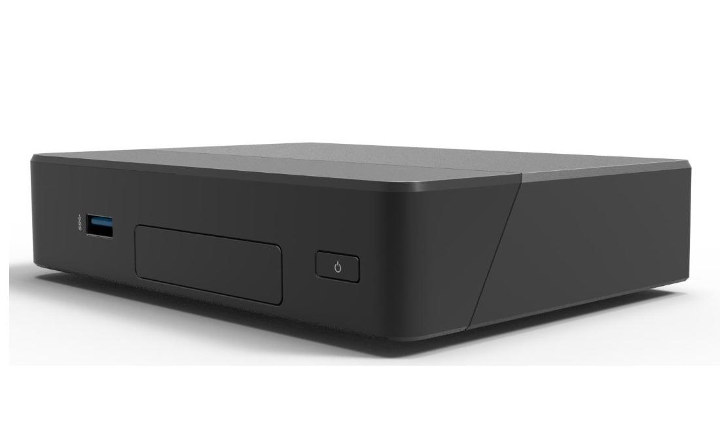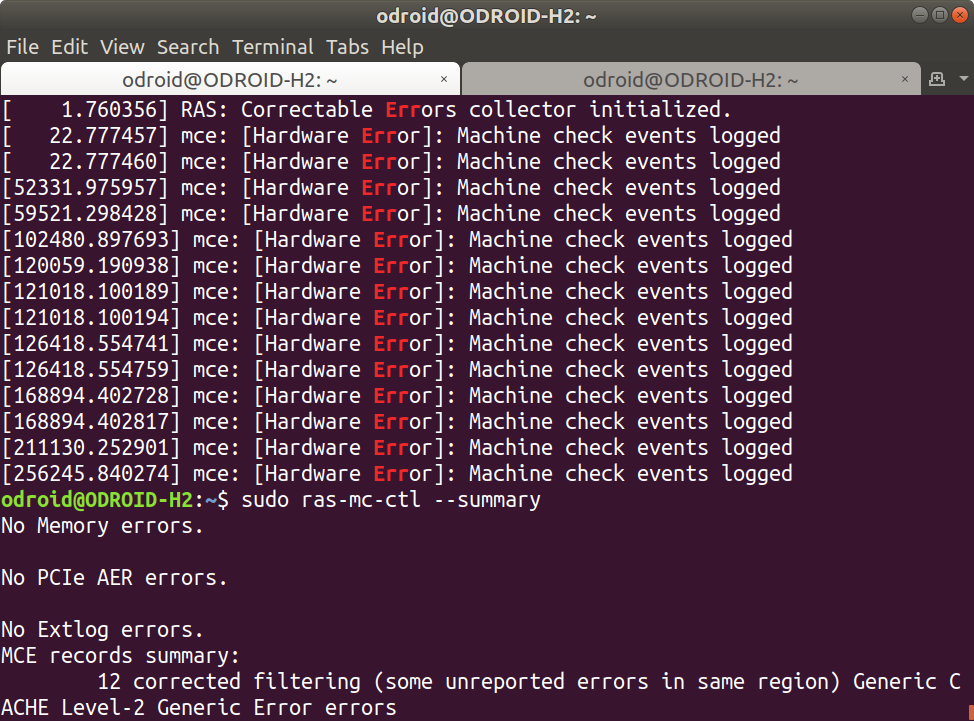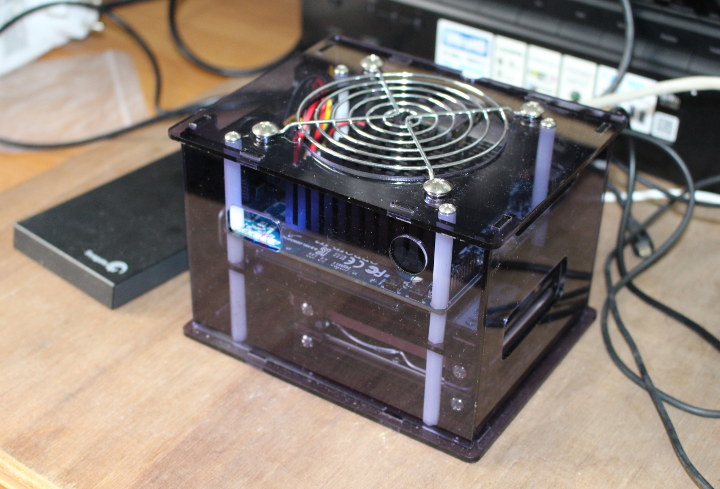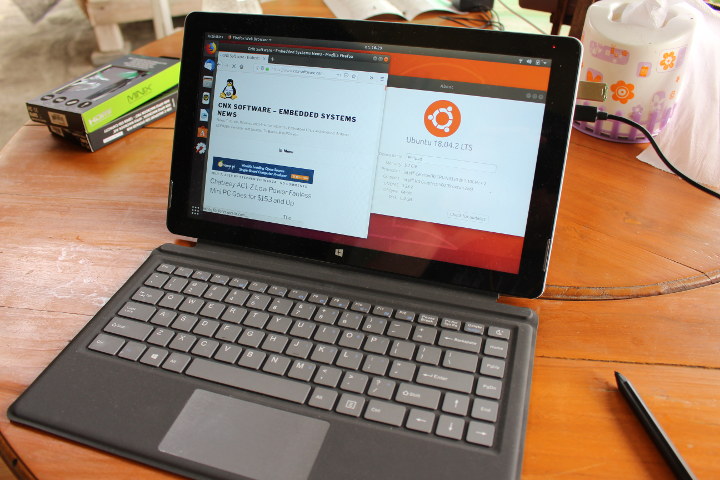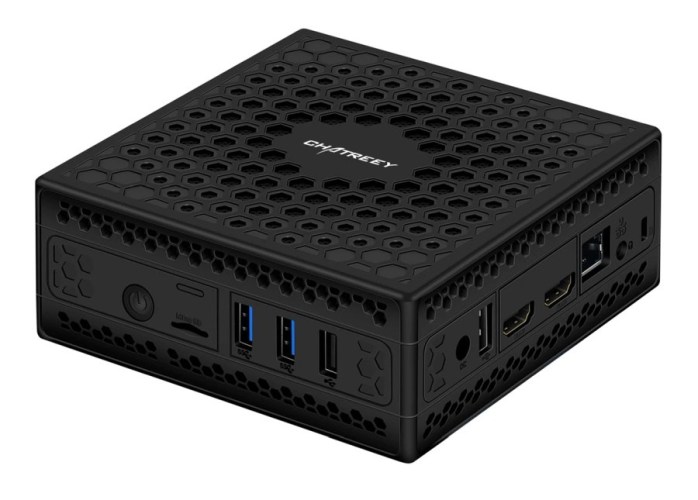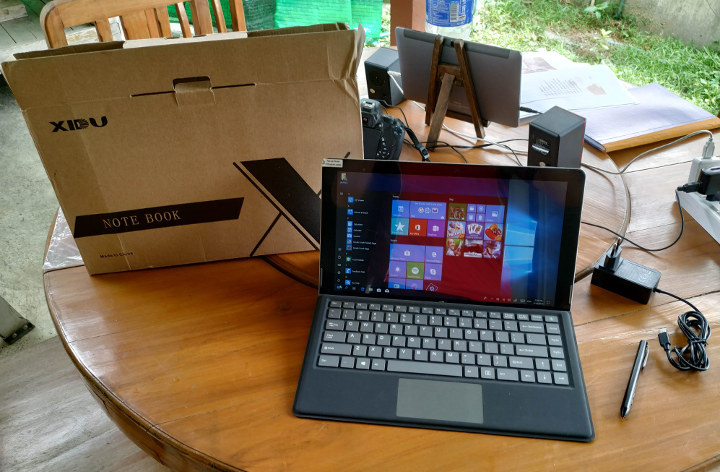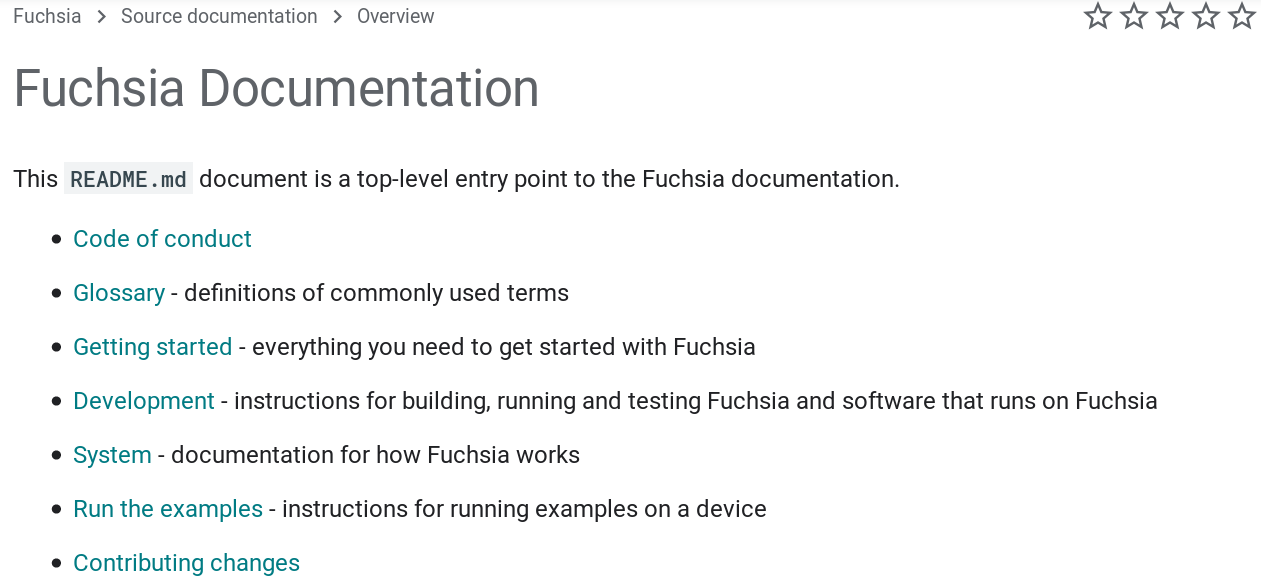Most Intel NUCs are cooled with a fan, and so far if you wanted a fanless NUC you had to purchase a third party enclosure. But Intel has been working on a new model named either “Chaco Canyon” NUC or Intel NUC 8 Rugged that’s both fanless and rugged. The fanless NUC is powered by a dual-core Intel Celeron N3350 Apolo Lake processor coupled with 4GB of RAM and a 64GB eMMC flash both of which are soldered to the board. You can add to storage thanks to an M.2 2280 slot with support for NVMe or SATA SSD’s. Intel NUC 8 Rugged specifications: SoC – Intel Celeron N3350 dual-core processor clocked at 1.1 GHz / 2.4 GHz with Intel HD Graphics 500; 6W TDP System Memory – Dual-channel 4GB RAM soldered-down Storage – 64GB eMMC flash soldered-down, M.2 2280 key M slot for PCIe x4 NVME or SATA SSD […]
Intel Mini PCs Linux Performance Comparison
Recent vulnerabilities in Intel x86 microprocessors (Meltdown, Spectre, Foreshadow, RIDL, Fallout, ZombieLoad, etc.) are now addressed with mitigation patches for the Linux kernel although have resulted in some performance degradation. As a consequence, my previous comparison benchmarks could be somewhat misleading when compared with new results given the different versions of software at the time of execution. So I’ve repeated running my standard Phoronix Test Suite benchmarks on several of the latest mini PCs each running the latest updated Ubuntu 18.04.2 software with the same Ubuntu 4.15.0-54 kernel. Specifically, the mini PCs I’ve used are as follows: Intel NUC NUC7CJYSAL (Celeron J4005 Gemini Lake) Pepper JobsGLK-UC2X (Celeron N4100 Gemini Lake) Beelink Gemini X X45 (Celeron J4105 Gemini Lake) Beelink Gemini X X55 (Pentium Silver J5005 Gemini Lake) with updated BIOS Intel NUC NUC7PJYH (Pentium Silver J5005 Gemini Lake) Beelink L55 (i3-5005U Broadwell) On each mini PC, I’ve also run sbc-bench which is […]
Checking Out Machine Check Exception (MCE) Errors in Linux
I recently reviewed ODROID-H2 with Ubuntu 19.04, and noticed some errors messages in the kernel log of the Intel Celeron J4105 single board computer while running SBC-Bench benchmark:
|
1 2 3 4 5 6 7 8 9 |
[180422.405294] mce: [Hardware Error]: Machine check events logged [180425.656449] mce: [Hardware Error]: Machine check events logged [180483.582825] mce_notify_irq: 17 callbacks suppressed [180483.582827] mce: [Hardware Error]: Machine check events logged [180484.991484] mce: [Hardware Error]: Machine check events logged [180594.700684] mce_notify_irq: 13 callbacks suppressed [180594.700686] mce: [Hardware Error]: Machine check events logged [180858.202115] mce: [Hardware Error]: Machine check events logged [181178.047031] mce: [Hardware Error]: Machine check events logged |
I did not know what do make of those errors, but I was told I would get more details with mcelog which can be installed as follows:
|
1 |
sudo apt install mcelog |
There’s just one little problem: it’s not in Ubuntu 19.04 repository, and a bug report mentions mcelog is not deprecated, and remove from Ubuntu 18.04 Bionic onwards. Instead, we’re being told the mcelog package functionality has been replaced by rasdaemon. But before looking into the utilities, let’s find out what Machine Check Exception (MCE) is all about from ArchLinux Wiki: A machine check exception (MCE) is an error generated by the CPU when the CPU detects that a hardware error or failure has occurred. Machine check exceptions (MCEs) can occur for a variety […]
ODROID-H2 Review – Part 2: Ubuntu 19.04
After many months of delays due to Intel not mass-producing Gemini Lake processors, Hardkernel started selling ODROID-H2 again, more exactly ODROID-H2 Rev. B, and the end of last month, and the company sent me a full kit for evaluation. You can check out ODROID-H Rev. B with Type 3 case and the assembly instructions in the first part of the review. I’ve now had time to play with the board using the pre-installed Ubuntu 19.04 operating systems so I’ll report my experience in this second part. Note that ODROID-H2 does not rely on a custom version of Ubuntu, and instead you can download and flash Ubuntu 18.04 or 19.04 ISO directly from Ubuntu website. First Boot and System Information I had already connected two SATA drives inside the enclosure, one SSD and one HDD, but before booting the device I connected an HDMI cable, one Ethernet cable, USB keyboard & […]
Testing Ubuntu 18.04 on XIDU PhilPad 2-in-1 Hybrid with Touchscreen
So I’ve recently completed the review of XIDU Philpad 2-in-1 hybrid with Windows 10. The laptop features a 13.3″ touchscreen and support stylus, and I was intrigued whether those would work in Ubuntu 18.04. So I flash the Ubuntu 18.04.2 Desktop ISO to a flash drive and installed Ubuntu to another USB flash drive to give it a try with persistent storage. Note that while it’s OK for testing, running Ubuntu 18.04 from a USB flash drive is very slow, so it’s not recommended. The good news is that you can enter the BIOS by pressing either Esc or Del at boot time, an option is available to select Linux in the BIOS. I could then select Partition 1 in my bootable flash drive, and install Ubuntu 18.04 on the other drive with some patience, and everything works smoothly, albeit slowly due to using a cheap USB flash drive during […]
Chatreey AC1-Z Low Power Fanless Mini PC Goes for $153 and Up
The Chatreey AC1-Z mini PC is running either the Intel Celeron Apollo Lake J3455 and the Intel Celeron Gemini Lake J4105 and boasts a full complement of features and SoC peripherals. It closely resembles the series of mini computers similar to the Zotac Nano mini PC. The Chatreey AC1-Z is a silent, fanless mini-PC that offers 4GB RAM, 4K resolution across two display inputs, and housing either the Apollo Lake or the Gemini Lake processors. The Gemini Lake version has a choice of up to 64GB eMMC storage and offers a drive bay for an optional 2.5 SSD or SATA HDD. I/O 2x USB 3.0 Type A, 2x USB 2.0 Type A 1x LAN 1x Micro SD 1x Audio 3.5 mm 2x HDMI Features Power Button Kensington Lock Power Connector (12V 2.5A) Dual-band WIFI /WLAN 802.11ac+BT The AC1–Z system is inspired by other mini-PC models and carries a lot of […]
XIDU PhilPad 2-in-1 Hybrid 2K Laptop Review
I had never heard about XIDU laptops and tablets, and it’s apparently the brand name of “Shenzhen Baohuazhong Co Limited” that was founded in 2014 and specializes in the design, development, manufacturing, distributions, and support for computer systems. I came to know about the company as they approached me to review one of their laptops, namely XIDU PhilPad XT133A model with an Intel Celeron N3350 dual-core Apollo Lake processor coupled with 6GB RAM and 64GB storage, and equipped with a 13.3″ touchscreen display with 2K (2560×1440) resolution. XIDU PhilPad Specifications SoC – Intel Celeron N3350 dual core Apollo Lake processor @ 1.10 GHz / 2.40 GHz (Turbo) with 12EU Intel HD graphics 500 GPU; 6W TDP System Memory – 6GB DDR3 Storage – 64GB eMMC flash, microSD card slot Display – 13.3″ touchscreen IPS display with 2560 x 1440 resolution Audio – 3.5mm headphone jack, built-in microphone and speaker Camera […]
Google Fuchsia Operating System Gets its own Developer Website
Google has been developing Fuchsia open source operating system based on Zircon kernel for several years. It’s still unclear what’s the end goal. Will it replace Android or/and Chrome OS, ditching the Linux kernel for Zircon in the process? We don’t know, and Google claims its an experimental endeavor. Only the future will tell. We’ve had access to the source code since 2016, but Google has now launched a dedicated developer website for Fuchsia: fuchsia.dev This is year 2019, and Google being a Western company it should not be surprising the first part of the documentation is a Code of Conduct, but there’s also plenty of technical documentation with a glossary, getting started guide, building instructions, an overview of the OS, code samples, and instructions to contribute either by testing or submitting changes to Gerrit. Fuchsia is strictly a 64-bit operating system at this stage with support for Arm64 and […]


